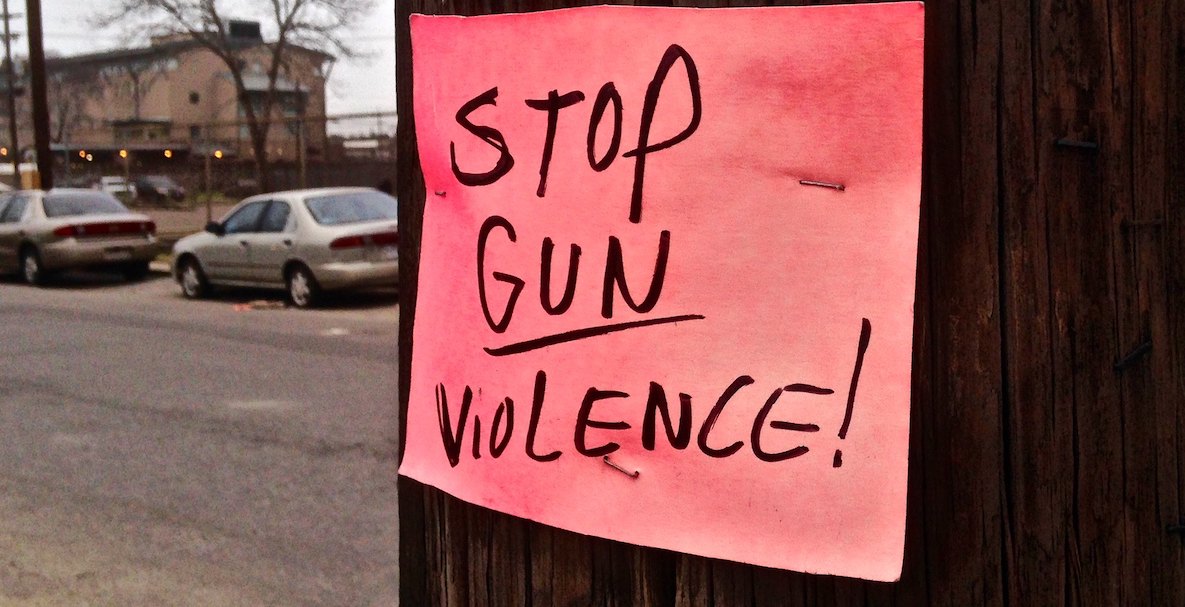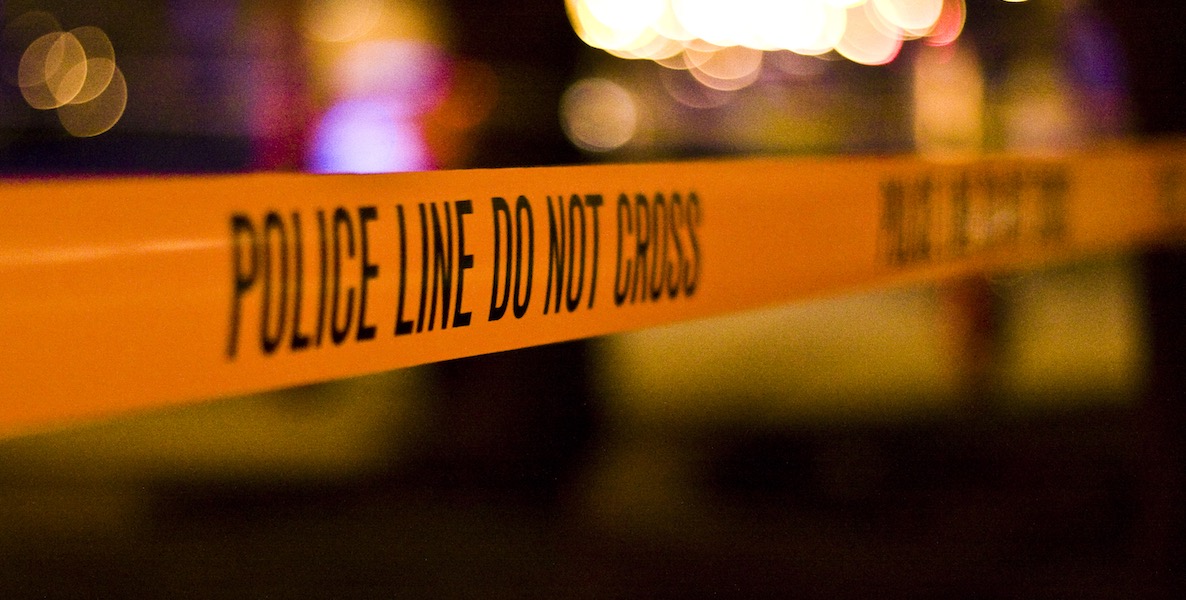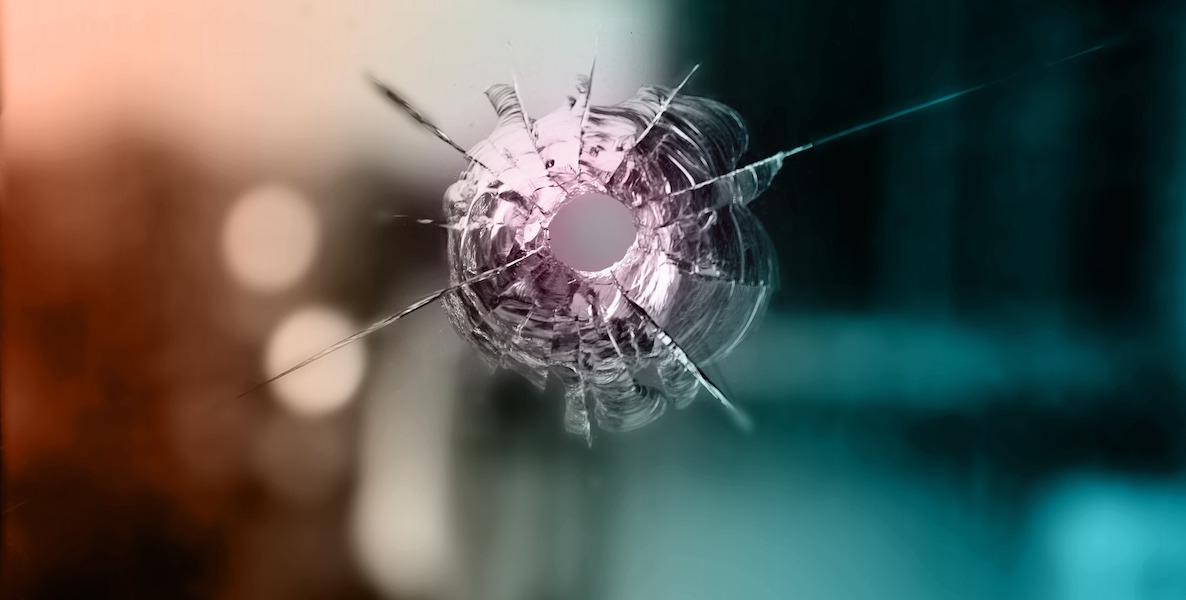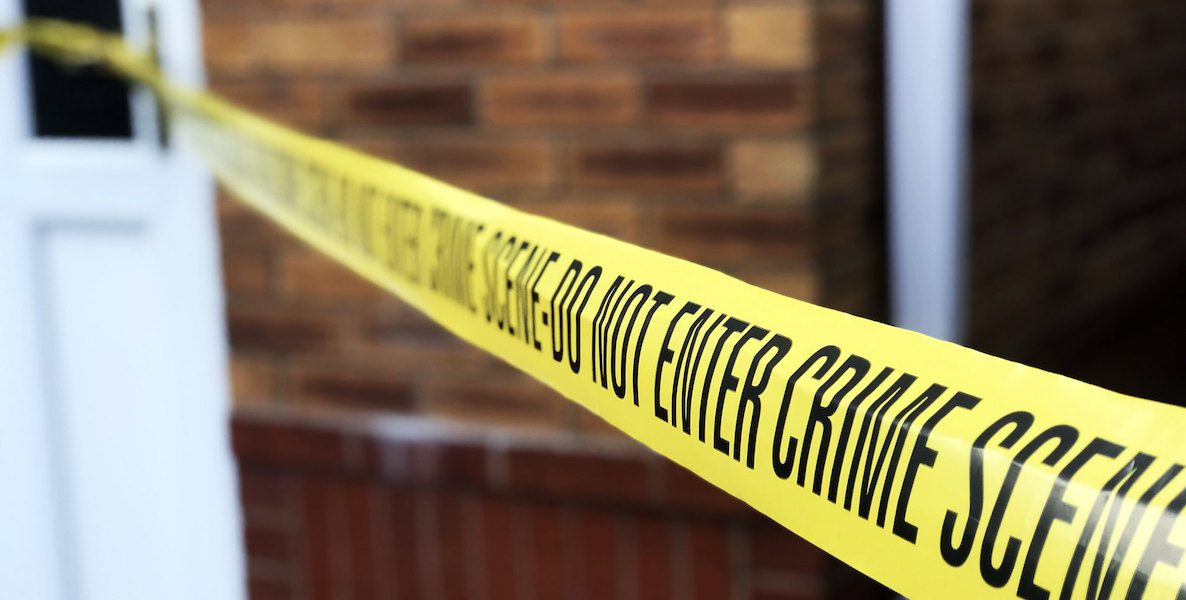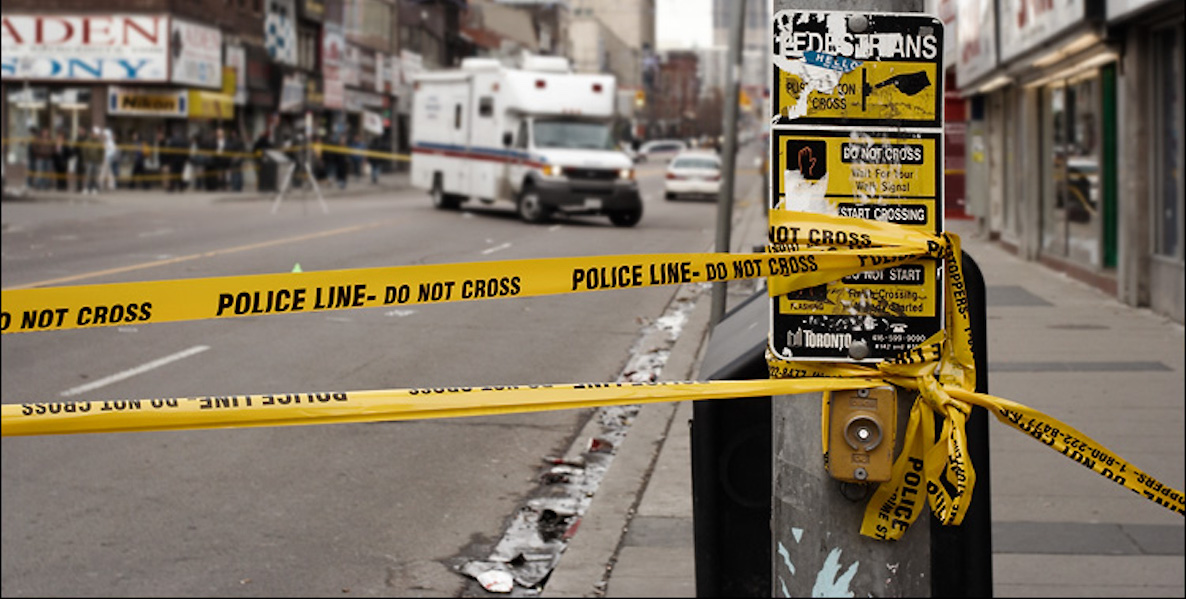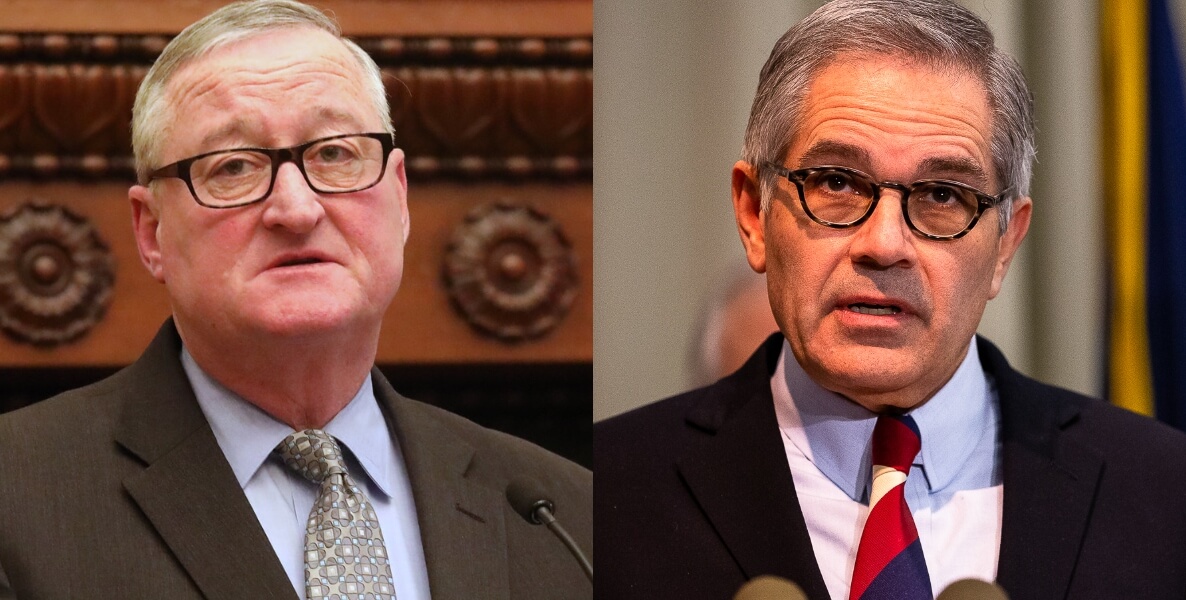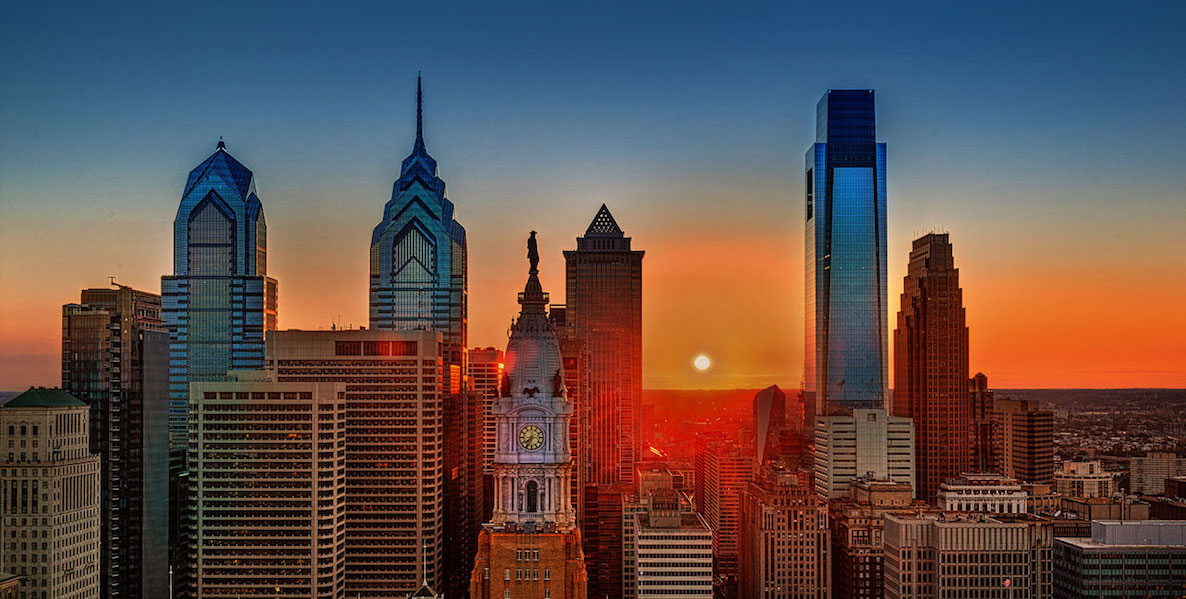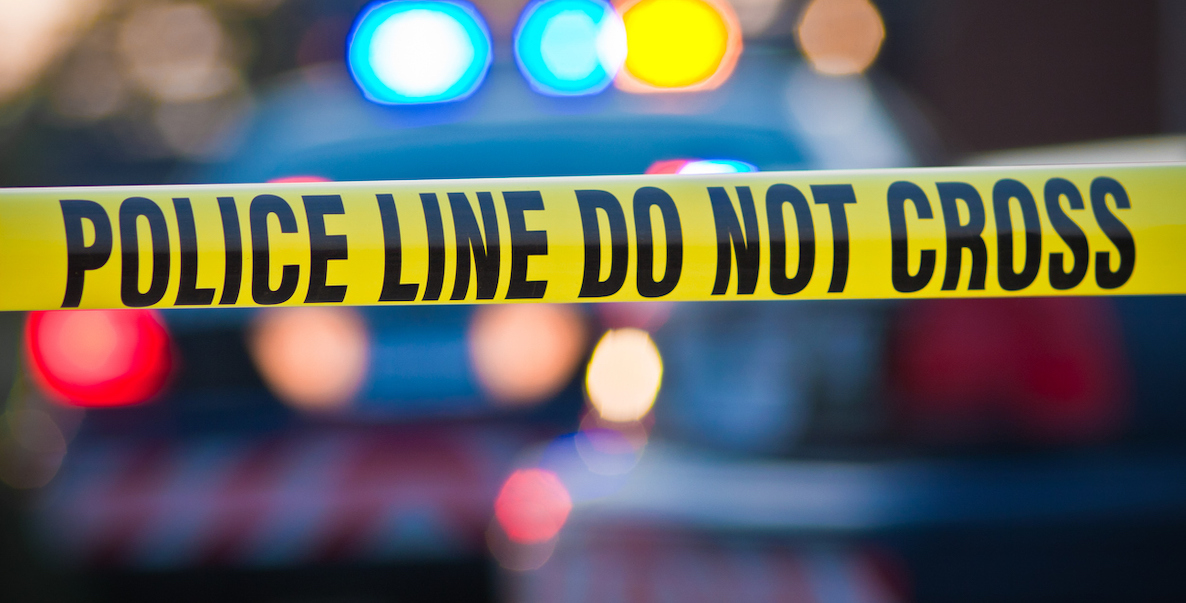![]() Mayor Jim Kenney’s daily coronavirus press briefings were already weird and cringy standups, as momentous for their lack of transparency as they are for the total absence of inspiration. But things took a new and inappropriately sulky turn on Tuesday when the Mayor angrily popped off topic, pivoting from pandemic to partly blaming his city’s prosecutor for a sudden spate of vicious gun violence.
Mayor Jim Kenney’s daily coronavirus press briefings were already weird and cringy standups, as momentous for their lack of transparency as they are for the total absence of inspiration. But things took a new and inappropriately sulky turn on Tuesday when the Mayor angrily popped off topic, pivoting from pandemic to partly blaming his city’s prosecutor for a sudden spate of vicious gun violence.
The most recent: five shot, including a 1-year old, in a North Philly rowhouse during a birthday party (which was already violating social distancing mandates).
“His office is aware of our concerns, and we’ve expressed them and we’ll express them again,” Kenney blurted in a scathing critique of Philadelphia District Attorney Larry Krasner. “We need more people who are carrying guns on the street illegally, and carrying guns with a record, to be separated from the community. We are calling on the district attorney to vigorously enforce all firearms-related charges during this time of crisis. It is imperative that we send a clear message: Gun violence will not be taken lightly.”
![]() Paraphrasing Citizen Co-founder Larry Platt’s recent column about crisis leadership, that wasn’t a very Churchillian moment. In fact, it was Trumpian. Mayor Kenney loves to pounce on Trump whenever the scapegoating mood calls for it. Yet, it was a flash of the exact same thing many disgusted and depressed Americans have watched daily in White House coronavirus press briefings: moments of an unhinged, moronic president whose refusal to empathize with the public drives an obsession with incessant finger-pointing.
Paraphrasing Citizen Co-founder Larry Platt’s recent column about crisis leadership, that wasn’t a very Churchillian moment. In fact, it was Trumpian. Mayor Kenney loves to pounce on Trump whenever the scapegoating mood calls for it. Yet, it was a flash of the exact same thing many disgusted and depressed Americans have watched daily in White House coronavirus press briefings: moments of an unhinged, moronic president whose refusal to empathize with the public drives an obsession with incessant finger-pointing.
So, what makes Kenney different?
To Kenney’s point, yes: gun violence is Philadelphia’s “other public health crisis.” That’s been ongoing for some time now, long before Covid-19 shut us all down into stay-at-home stasis.
In a pandemic, especially with Philly now showing the highest numbers of cases in the state, what’s needed is a show of humble leadership and relentless collaboration.
Epidemic-level shootings still persist as if coronavirus doesn’t exist. Homicides are (as of this writing) 19 percent higher than where they were this time last year (96 killings versus 81 at the top of April 2019). We’ve not seen that comparable increase fall below 10 percent yet since the beginning of 2020. There’s also been a nearly 9 percent increase in “total violent crime offenses” overall compared to last year, once we take a deeper look into weekly Philadelphia Police Department data.
There’s been an almost 14 percent increase in homicides overall in just the “last 28-day period” (from 22 in February to 25 in March) and a really alarming 37.2 percent increase in “aggravated assaults by gun” between those two months: from 172 in February to 236 in March.
Even with social distancing measures aggressively taking effect throughout Philly during much of March, that is the highest “last 28-day period” spike in gun assaults since the beginning of the year.
It’s as if Covid-19 didn’t slow gun violence in Philadelphia; instead, it accelerated it.
In a pandemic, especially with Philly now showing the highest numbers of cases in the state, what’s needed is a show of humble leadership and relentless collaboration. Indeed, it’s tragic to have a mass shooting take place in North Philly in the middle of a public health apocalypse, and the Mayor should get mad. But, that’s where you use the moment to find as many allies, friends and co-pilots as you can.
What happened, instead, is a moment where the D.A. finds himself in a pre-scheduled interview on Reality Check’s WURD being forced to answer my question: “What’s going on?” That prompted shade-throwing in response: “I like Jim,” said Krasner — yet, notice the subtle use of first name—“but, I called him right after that press conference and he hasn’t returned my calls.”
Residents shouldn’t have to hear that kind of tension. Everyone should be confident that city leaders are on point and on the same page—especially during a pandemic and a spike in gun violence.
Krasner is right that the violence in Philly has many causes, including systemic issues of poverty, an unequal and brutal economy and a crumbling education system. Kenney himself has always acknowledged the stressors of Philly’s ongoing struggle with vicious poverty and inequality, in most speeches or policy proclamations since he’s been running things.
Mayor Kenney loves to pounce on Trump whenever the scapegoating mood calls for it. Yet, it was a flash of the exact same thing many disgusted and depressed Americans have watched daily in White House coronavirus press briefings.
Now, offering a “tough on crime” stance by openly snapping at one of the city’s most prominent reformers seems somewhat out of policy character. What this week’s outburst speaks to is the revival of a bifurcation of two approaches in crime mitigation that can actually complement the other. The classic “tough on crime” approach of policing doesn’t have to compete with the reformist or systemic adjustment approach, and vice versa.
The mayor shouldn’t have to promote one approach at the total expense of the other. Certainly, civil societies need police, and communities need to feel and be safe. That’s what police are tasked to do, and prosecutors are teammates in that effort towards ensuring violent perpetrators are punished severely and accordingly.
But, Kenney has little room in his glass house to throw stones. A prosecutor who’s crafting a much more refined and targeted approach could be the type of partner you need to help overhaul a police department that’s solving murders only 40 percent of the time. That’s the elephant in the room he’s not touching, perhaps because he’s too busy extending the police union’s contract by one year and, in turn, approving raises for a homicide division that’s clearly not performing at its fullest.
What could make law enforcement, including homicide, and prosecution functions flow much smoother is if much of that violence is eliminated before it begins, or the crimes are cut off at the pass. That’s what the City’s pilot of focussed deterrence found before Kenney shut it down when he became mayor. And that’s where there could be value in Krasner’s holistic “wraparound” and trauma-informed approach.
Granted, it’s a very dramatic departure from what a D.A. traditionally does. And it shouldn’t have to contradict some basic tenets of policing, some elements which do work, particularly in crisis moments.
But, identifying the origin stress points that lead people, mostly in distressed communities, to disproportionately consider or commit or get caught up in these types of crimes is crucial. Tackling systemic inequities or the disparities caused by hundreds of years of racism and classism shouldn’t be considered “soft”—those approaches are about being “tough on crime.”
Unfortunately, Krasner has long struggled with the optics of his reformist approach. This 2019 analysis by The Inquirer, for example, doesn’t help the reforming cause. It’s not a good look when a “… decline in [gun case] convictions — from 61 percent at the end of 2017 to 50 percent a year later — appears almost entirely due to more cases being withdrawn by prosecutors or dismissed by a judge early in the process.”
Nor is it the best talking point to show that “[a]ccording to the District Attorney’s Office website, 42 percent of firearms cases this year were dismissed by judges or withdrawn by the office, a higher percentage than in any year since the start of 2014.”
Is that proving Krasner is soft on crime? Not necessarily. “We need to recognize that the law and order, tough approach on crime has not been effective. Remember: we were way above 400 homicides during the 1990s and early 2000s ![]() in a city that was smaller … and with a DA that celebrated herself as ‘one tough cookie’ who was jailing everyone up,” says Gregory Holston, a senior advisor to Krasner. “Locking up the key doesn’t make you safer, we’ve been down that road before and it exacerbates it. The more just and fair we are across the board—in our economy, in the need to end mass poverty, in housing, in education, etc.—the better we are at creating the atmosphere for all of us to have a safer city.”
in a city that was smaller … and with a DA that celebrated herself as ‘one tough cookie’ who was jailing everyone up,” says Gregory Holston, a senior advisor to Krasner. “Locking up the key doesn’t make you safer, we’ve been down that road before and it exacerbates it. The more just and fair we are across the board—in our economy, in the need to end mass poverty, in housing, in education, etc.—the better we are at creating the atmosphere for all of us to have a safer city.”
But Krasner can’t ignore the tension he has produced in this city. He needs to recraft his messaging, and maybe his policies, in such a way that exudes firmness and signals a steely image, and prompts the most violent perpetrators to think twice.
He should be touting the data which show, to residents, the direct correlation between the violence of equity gaps and the violence of crime. His needs to show Philadelphians that those holistic efforts are performing. It may be too early to tell the long term effects, but it’s crucial to find the incremental progress made in those initial steps and examples of where restorative justice is or could be working—if they exist.
Meanwhile, true leadership in fighting this epidemic, as with Covid-19, means a joining together of forces—not making us all choose a side.
Charles D. Ellison is executive producer and host of “Reality Check,” which airs 11 a.m. to 1 p.m. Monday through Thursday on WURD Radio (96.1FM/900AM). Check out The Citizen’s weekly segment on his show every Wednesday at noon. Ellison is also principal of B|E strategy. Catch him if you can @ellisonreport on Twitter.



